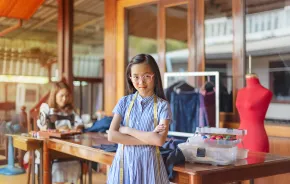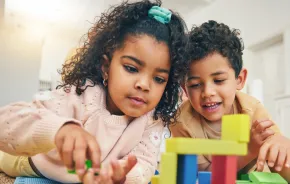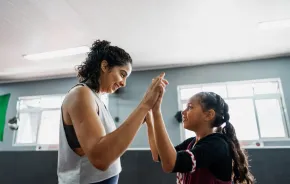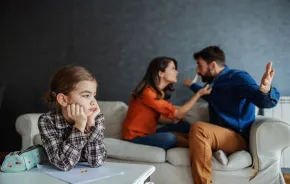 I remember clearly the day I rode an elevator with former Seattle SuperSonics coach Lenny Wilkens and the team’s legendary center, Jack Sikma. I was 7, and man, did I look up to them. (I mean, way up.) I don’t remember what they said, but I do remember that they talked to me, and I thought they were the coolest. It would never have crossed my mind that they were anything but perfect.
I remember clearly the day I rode an elevator with former Seattle SuperSonics coach Lenny Wilkens and the team’s legendary center, Jack Sikma. I was 7, and man, did I look up to them. (I mean, way up.) I don’t remember what they said, but I do remember that they talked to me, and I thought they were the coolest. It would never have crossed my mind that they were anything but perfect.
More than 30 years later, I still think those guys are pretty darn cool. But I no longer believe they’re perfect. Years of watching stars fall from grace has taught me that even people with superhuman talent make plenty of mistakes. Most grown-ups know this, but what about our kids? What do we tell our starry-eyed children when those they admire screw up?
When the news broke this week of Macklemore’s wardrobe malfunction during a concert at EMP in Seattle, I knew I had a teachable moment on my hands: a chance for a meaningful discussion with my children about making mistakes and fixing them, and an opportunity to explore who we look up to and why.
My initial response to Macklemore’s costume was, like many, shock. How could this person, who stands up for the rights of so many, take the stage dressed like a caricature of a Jewish stereotype? As a Jew, I was especially horrified.
At that stage in the news cycle, the only response from him had been a tweet that sounded eerily like my kids do when they know they’ve done something wrong: “It’s not my fault, I didn’t do it on purpose, what’s the big deal?” Luckily, Macklemore’s second response was much more thoughtful and apologetic — but as a parent educator and a mom, I knew this was still a chance to talk about how the way we handle mistakes makes all the difference in the world.
Teaching in the moment
I started by asking my 5-year-old what she does when she hurts someone’s feelings. She said, “You say you’re sorry, even if you don’t get why they are upset.” I asked why someone would apologize if they didn’t mean to hurt someone else. Her response: “Because everyone’s feelings matter.” Macklemore could learn a thing or two here, right?
Everyone’s feelings matter. When we do not repair a broken situation, we leave others feeling like they don’t matter. They are likely to lose trust in us, and we put the relationship at risk.
So how can we teach our kids how to handle mistakes? Positive Discipline outlines four steps:
Re-gather. Most of the time, we know right away that we’ve made a mistake, whether it’s from that sick feeling in our stomachs or the hurt look on someone’s face. Whether it was intentional or not, we need to slow down and evaluate the situation. In these moments, it’s much easier to get mad and blame others than it is to say, “I screwed up.” If we respond too quickly, though, we are likely to be reactive instead of apologetic. Instead, we should take a deep breath and calm down before we cause more damage.
Recognize. We each play a part in every interaction. All we need to do is own our part. Macklemore’s apology models this well: He explained his thought process, and even though the hurt he caused was unintentional, he took ownership of his actions and how others may have perceived them.
Reconcile. This is the apology part, the time where we say, “I messed up, and I’m sorry.” If you hear yourself saying, “I am sorry, but ... ,” it’s time to try the apology again.
Resolve. Here’s where learning comes in. Often parents are in a rush to hear their children say the words “I’m sorry,” and once that happens, the discussion is over. However, this final step is essential. This is where you reflect on what went wrong — and, most important, let those who were hurt know what you plan to do differently next time.
Be the change you wish to see
Our kids learn so much more from our actions than from what we tell them to do. When parents make mistakes, we have the opportunity to show our kids what repairing the situation looks like. This means we need to model this process every chance we get. I was delighted to share Macklemore’s apology with my children, because it cemented for them that no matter how famous, rich and talented you are, the way you handle your mistakes shows your true worth.
Want another reason to follow these steps? The real hero your kids look up to is you. You’re the one who leaps tall buildings in a single bound. You’re the one who can make them swoon with your undivided attention and support. And you’re the one who loves them unconditionally when they screw up.
So let your kids dream of their heroes, but be sure to show them every day what real heroes look like — mistakes and all.











